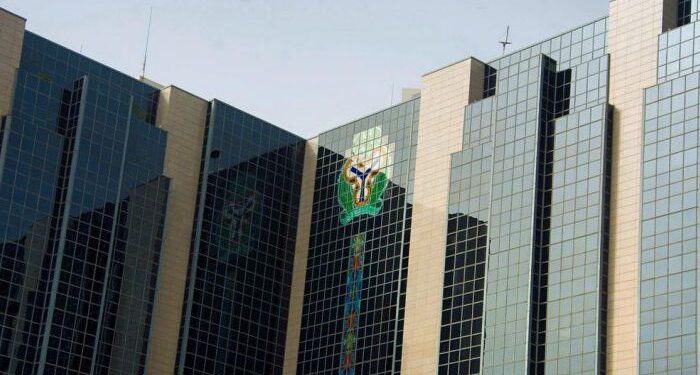Nigeria’s economy is beginning to feel the early impact of the Central Bank of Nigeria’s (CBN) sweeping reforms, as recent indicators suggest progress in the fight against inflation and the restoration of confidence in the financial system. The CBN, under the leadership of Governor Olayemi Cardoso, has introduced a series of policy measures aimed at stabilizing the naira, tightening monetary control, and addressing structural imbalances that have fueled price increases over the past two years.
Inflation has remained one of the country’s most pressing economic challenges, with food and energy prices biting deep into household incomes. For months, Nigerians have endured double-digit inflation levels that pushed many families to the brink, while businesses grappled with high input costs and reduced consumer purchasing power. However, new data points to signs of relief, with inflationary pressure gradually easing in response to monetary adjustments and improved foreign exchange liquidity.

One of the core drivers of this positive turn is the CBN’s renewed focus on exchange rate unification and its efforts to stabilize the forex market. By clearing a significant backlog of FX obligations and enforcing stricter oversight of bureau de change operations, the apex bank has improved dollar supply and reduced speculative activities that had previously undermined the naira. In recent weeks, the local currency has shown more stability, creating breathing space for importers and reducing pressure on inflation.
Analysts have also credited the CBN’s decision to sustain a tight monetary policy stance through higher interest rates. While this has raised borrowing costs for businesses and households, it has helped mop up excess liquidity and dampen inflationary spirals. The policy has also boosted investor confidence, drawing more foreign portfolio inflows into Nigeria’s fixed-income market and strengthening external reserves.
At the same time, the CBN has introduced reforms to modernize the banking sector and improve transparency in financial transactions. Measures such as stricter compliance requirements for banks, enhanced supervision of digital payments, and deeper collaboration with fiscal authorities have strengthened the country’s monetary policy framework. The reforms are also gradually restoring the confidence of international partners and credit rating agencies, who had flagged Nigeria’s macroeconomic instability in previous years.
The positive results are not without challenges. Food inflation, driven by rising logistics costs, insecurity in farming communities, and global supply chain disruptions, continues to pose risks. Similarly, energy costs remain high, with transport fares and electricity tariffs adding to household expenditure. While the CBN’s interventions are beginning to address currency-related inflation, structural issues in agriculture, infrastructure, and energy require broader government action to ensure lasting stability.
Despite these hurdles, economists remain cautiously optimistic. They argue that if current reforms are sustained and complemented by fiscal discipline from the federal government, inflation could decline steadily over the coming quarters. Improved FX inflows from oil revenues, remittances, and foreign investments are also expected to provide additional support for the naira and help ease imported inflation.
Market players, particularly in the manufacturing and retail sectors, have begun to notice marginal relief in operational costs. Importers report that accessing foreign exchange has become less cumbersome compared to the volatility experienced last year. Likewise, financial analysts believe that exchange rate predictability will allow businesses to plan better and reduce the uncertainty that previously stalled investments.
The CBN has repeatedly emphasized that its reforms are not quick fixes but part of a long-term strategy to restore macroeconomic balance. Governor Cardoso has maintained that monetary policy must remain aligned with Nigeria’s broader economic reforms, including fiscal consolidation, subsidy reforms, and industrial diversification. According to him, the apex bank is determined to build a transparent and accountable system that will promote stability and attract sustainable investments.
Nigerians, however, are looking beyond statistics to the real impact on their daily lives. Households are still dealing with high food prices, limited disposable income, and reduced purchasing power. For many, the benefits of the CBN’s reforms will only be fully recognized when inflation slows enough to reflect in market prices and wage improvements. Civil society groups have urged the government to pair monetary measures with targeted social interventions to protect vulnerable groups from the harshest effects of ongoing reforms.
On the global stage, the CBN’s reforms are helping reposition Nigeria as a more predictable investment destination. International institutions have noted the progress in tackling FX instability, which had been a major concern for foreign investors. If Nigeria maintains its reform momentum, analysts believe the country could attract higher levels of foreign direct investment, boosting job creation and economic diversification.
In conclusion, while inflation remains a significant challenge, the CBN’s policy reforms are beginning to yield tangible results. Stabilization in the forex market, improved investor confidence, and a stronger monetary policy framework are all positive signals for the economy. Sustained reforms, alongside structural improvements in agriculture, energy, and security, will be critical to consolidating these gains. Nigerians are eager for the day when these policy wins translate into lower market prices and greater financial relief, and current trends suggest that with persistence, that day may be closer than before.
Support InfoStride News' Credible Journalism: Only credible journalism can guarantee a fair, accountable and transparent society, including democracy and government. It involves a lot of efforts and money. We need your support. Click here to Donate
